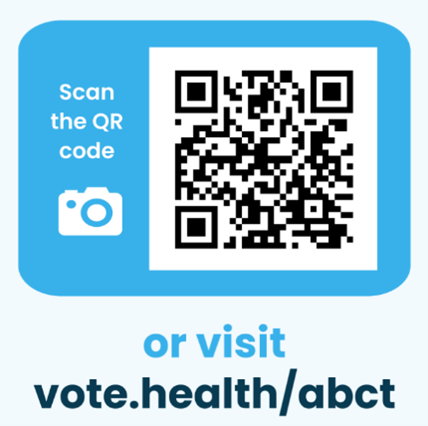Find a CBT Therapist
Search through our directory of local clinicians.
Register Your Community Using ABCT’s New, HIPAA-compliant Partner Vot-ER

We are delighted to announce a new and exciting partnership between ABCT and Vot-ER—a nonpartisan 501c3 that uses healthcare settings to register patients, coworkers, and community members to vote or make a plan to vote safely. Using Vot-ER’s online platform, individuals—you, your patients, staff, students, any eligible voter–can check their voter registration status, choose to register to vote, or request a mail-in ballot.
ABCT will have a unique QR code and link (see below) that individuals can scan or visit. As part of this partnership, ABCT members can request a Healthy Democracy Kit which features information, flyers, posters for your offices or labs, and scripts about the voter registration or vote by mail process. You can also request free digital kits or site-based physical resources including our unique ABCT voter registration badges. Materials are available in English and Spanish.
You can even add the QR code to your email signature with the following:
Are you registered to vote? Are you sure? You can check here:
Go ahead, give it a try.
Importantly, Vot-ER’s work is based on principles of behavioral economics. ABCT will have a dashboard tracking aggregate and deidentified access, engagement, and registration outcomes. We love data! Also of note, Vot-ER’s work is fully HIPAA compliant. More questions? Check out their FAQ page.
Are YOU registered to vote? Are you sure?
If you would like to discuss additional ways to promote voting in your communities, please feel free to email ABCT President Sandra S. Pimentel: [email protected].

